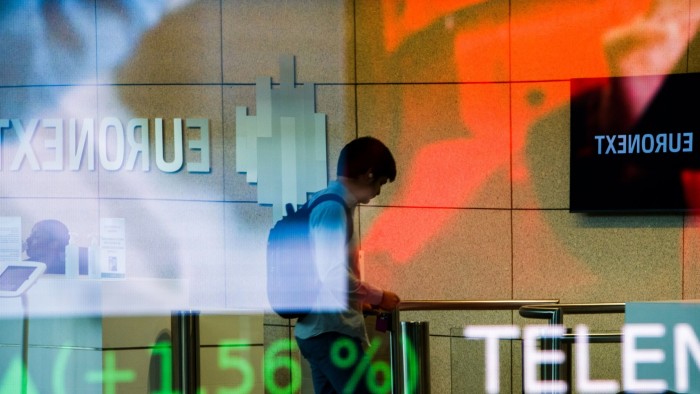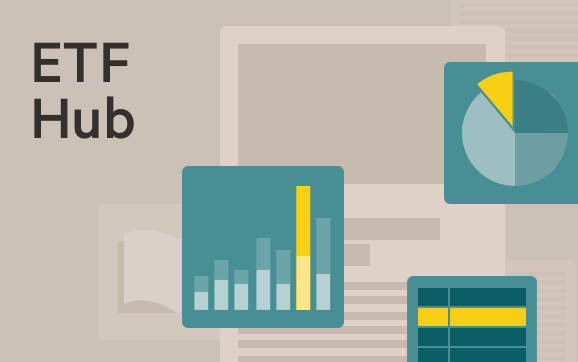Fee cuts fail to make significant impact on European ETF flows

Simply sign up to the Exchange traded funds myFT Digest -- delivered directly to your inbox.
Latest news on ETFs
Visit our ETF Hub to find out more and to explore our in-depth data and comparison tools
Reducing fees on exchange traded funds does not significantly increase the chances of attracting investors, new research suggests, denting the hopes of asset managers that have engaged in price wars in the sector.
ETF providers have frequently cut the charges on European products to get an edge over rival firms as competition has heated up in recent years.
Nearly 940 European ETFs cut their annual fees over the five years to the end of 2022, Morningstar data shows.
However, on average just over half of the ETFs that reduced fees, 52 per cent, saw increased net flows in the year following cost reductions over the five years assessed.

This article was previously published by Ignites Europe, a title owned by the FT Group.
Forty-nine per cent of the ETFs that reduced fees in 2022 experienced increased net flows in 2023, Ignites Europe analysis of Morningstar data finds.
This proportion was only 46 per cent in 2022, with the majority of ETFs that cut fees in 2021 garnering lower inflows in the following year.
By contrast, in both 2019 and 2020 a higher proportion of ETFs, 59 per cent, that cut their fees in either of these years then increased annual flows in the following year.
Some high-profile moves to slash fees on ETFs have highlighted the potential appeal of cost reductions to attract investors.
State Street Global Advisors’ SPDR S&P 500 Ucits ETF has attracted €2.7bn in net inflows over the three months since its fee was cut to 0.03 per cent in November last year.
However, for ETFs overall the chances of receiving this boost appear to be little greater than if funds maintain the same fee levels, the research finds.
Across all ETFs, regardless of whether they cut fees, 49.7 per cent increased annual net flows compared with the previous year, on average — only slightly lower than for ETFs that cut fees.
Experts say investors are not only attracted by low fees when selecting ETFs.
Liz Wright, head of sales for Europe, the Middle East and Africa at Morningstar Indexes, said an ETF that is a “short-term holding [ . . . ] may not necessarily see substantial inflows” if it cuts its fees.
Switching short-term holdings may result in higher costs for investors due to bid-offer spreads, she said.
As a result, managers considering fee reductions should target “long-term core holdings” as these are more likely to receive inflows, said Wright.
Deborah Fuhr, managing partner at ETFGI, an ETF research firm, agreed, saying that investors would not necessarily sell ETFs they own to buy another product that has lowered its fees, as they will have to pay commission on the transactions.
She said investors choose an ETF based on a range of factors, including the fund’s issuer and benchmark, as well as the exchange it is listed on.
Latest news on ETFs

Visit the ETF Hub to find out more and to explore our in-depth data and comparison tools helping you to understand everything from performance to ESG ratings
“There are a lot of criteria that drive the decision-making process,” Fuhr said.
“Fees for many [ . . . ] are a very important thing but it’s what’s inside the product and how it’s structured [that matters most],” she added.
Gerard Crossan, wealth and asset management director for Europe, the Middle East, India and Africa at EY, said ETFs had traditionally represented a low-cost, high-scale business that has attracted flows by compressing fees.
But fee compression “has reduced over recent years”, he said.
“Institutional investors typically look at the total cost of ownership of the ETF, not just the headline fee,” he added.
Brand and name recognition of asset managers plays a significant role in the differentiation between ETFs, as does brand recognition of the index and how well it is tracked, Crossan said.
*Ignites Europe is a news service published by FT Specialist for professionals working in the asset management industry. Trials and subscriptions are available at igniteseurope.com.
Comments